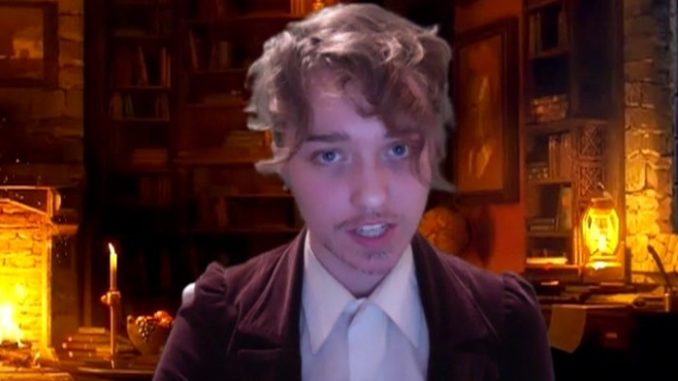
When the Blue Room Theatre opened Stuff ’n’ Things on March 12, California had just announced the cancellation of sporting events, part of the first wave of the state-mandated shutdown in response to the coronavirus. Four days later, theaters were ordered to close, putting an end to the run of the original locally produced musical as well as the remainder of the shows in the downtown playhouse’s 2019-20 season.
It’s the same for theaters all over the country—from local stages to those of the Oregon Shakespeare Festival in Ashland—that have pivoted amid the public health emergency. Sustaining a community theater during the best of times requires a great deal of imagination and resourcefulness, but in times of crisis those traits are critical to survival.
Less than one week after closing its doors, the Blue Room announced that Stuff ’N’ Things was back on, available for an online-only showing of a performance that had been recorded the previous week. The play’s director, Wade Gess, gave the theater permission to show the play through April on Patreon—a website that allows creators to cultivate patron memberships to support their work.
The Blue Room also uploaded other previously filmed shows and started recording new content for the site, including a socially distant reading of Treasure Island, wherein theater box-office Manager Craig Blamer edited together recordings of individual actors’ parts against various static backgrounds. There’s also been a series of Old Time Radio western-themed radio plays recorded by theater actors, and a storytelling show called Blue Stories hosted by Hilary Tellesen, with six different players telling stories on the theme of “Sneaking Out”—originally performed before a live Zoom audience.

The theater has quickly and completely shifted its entire approach and repopulated its schedule—redubbed the Dark Season—with a new roster of shows, including more live Zoom performances and Patreon uploads over the next two months. Additionally, the theater will be hosting Blue Zoom Summer Camp, with eight weeks of online youth theater instruction, and scholarships for children in families impacted by the Camp Fire (made possible by a grant from the Butte Strong Fund).
Theater Manager Amber Miller has been working with the Blue Room’s staff and board to implement the changes, and she spoke with the CN&R about running a theater during uncertain times.
CN&R: What’s the Dark Season?
We just started thinking about ways we could stay active. … I am trying to do a mixture [that includes] actual live events because to me it’s a way that we can do the concept of theater, as close as possible, over Zoom or over internet. … You register, you pay, you get a link and you get to come on and you get see the performance happening in real time—all the fun of that, and also the risks.
How did the first live event—Blue Stories—go?
It went really well. I was really happy, I was nervous. We also have Shakespeare in the Backyard [June 27] and the Bloomsday Celebration [June 16]. All these we’re hoping to do live. We’re going to keep thinking about what we can do in this format until we have more solid information about when it’s safe for both the audience and actors to open.
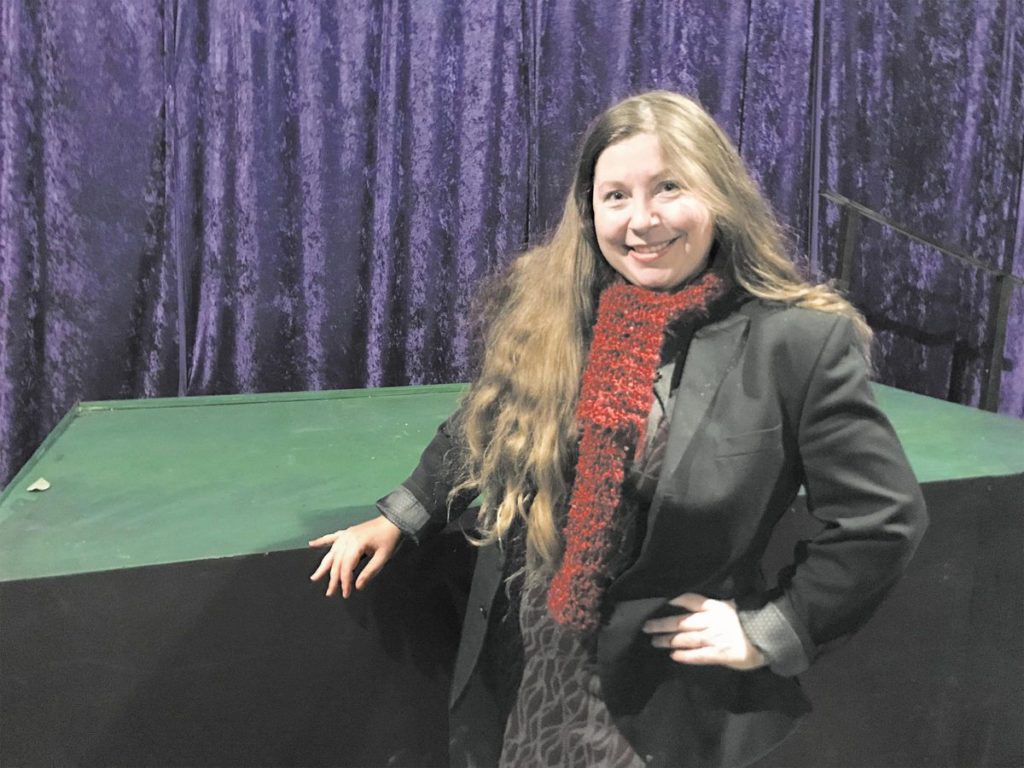
Where are you looking for ideas on adapting programming during the pandemic?
People were talking about Zoom, and then it looked like other theaters were looking into that, too. I need to do a little bit more exploration of that, but for me, it’s kind of been going in there and taking the time to try to learn it. [It’s] taken time. One big thing was when I learned that there’s a webinar feature. In Zoom, the webinar—it’s an add-on that you buy—allows you to [have] up to 100 people, audience members, and then you can have the host and panelists. So, you think of the host and panelists as the actors. You get to hear them, but everyone else comes in silent. So, it was a way to create kind of a virtual system.
How’s the Patreon support been?
I think we’re [at] over 70 patrons, which is nice. If we could keep building that, that’s just going to really, really help us.
What’s the plan with the shows you had to cancel?
Joe Hilsee and Joyce Henderson have been working on Annapurna since January. They were going to take a long slow rehearsal process—that was supposed to be our April show. That one we’re definitely committed to, so whenever it is safe for audience and actors to be able to get back and doing live theater, that’s going to be the first show. I’m hoping, hoping, hoping that Stuff ’N’ Things—the set’s just staying there; we didn’t clear off the props and the set … [but] one of my actors might be moving in early August—if for some reason they allow it [before August], we’ll do Stuff ’N’ Things.
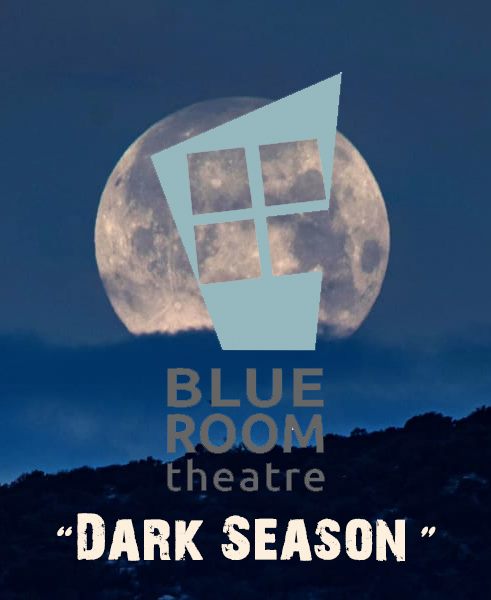
Given the uncertainty, what’s your approach to programming?
I’m looking at a season to move forward that we could do in any of the phases. I’m looking at maybe doing household casts, or monologues, things that we could actually pull off with any kind of phase in place. If we have to regress it still would be a good show. Let’s plan on things that, in a different kind of way, we could pull off whatever our allowances or limitations are. For Wilde Nights [a night of Oscar Wilde that will be released on Patreon June 14], I took a scene from Lady Windermere’s Fan, but I adapted it to a contemporary setting—a birthday party that’s on Zoom, and it’s kind of farcical. I’m thinking about expanding that and maybe adapting that whole play, and then if it had to be on Zoom and we’re still not allowed to do [in-person] theater in the fall, I could do a full Zoom play. Or we could do it inside and I could just minorly change it, or it could be a play about people on Zoom.
I’m just trying to think of ways of moving forward with the season that, if we get to be in the space, great, but if we can’t be we can work with some modifications of it—Zoom it, or film it, or social-distance where you could only have 20 people but still be able to film it and put it out so more people get to see it. Just trying to be flexible and innovative.
When theaters are able to reopen, the first stage likely will require a reduced audience capacity. Will you open the doors at that point?
I’m hoping we can do that, but it would have to be with filming and different things. My biggest thing is, I’m not sure where we’re going to fall—phase three or phase four. Movie theaters are phase three, but there’s a big difference with movie theaters because you’re watching a screen, you’re not having actors. It’s going to be difficult to social-distance actors. So, there might not even be a way to do live [in-person] theater for a while. I’ve tried to find information for California about smaller-venue live performance art, and it’s really not out there. If we’re in phase three, I’m sure we would have to be very distant. I think it would have to be in conjunction with the things we have in place—the filming and putting it up on Patreon just to be able to support that. [Also,] probably longer runs, add some matinees. We would have to change it, but I would love to be able to.
Where are you finding your guidelines for state mandates and details about the stages of reopening?
I’ve reached out to a couple people that I know that are working at other theaters in California, and they don’t have the answers either. I called the Public Health Department, they didn’t know.
So, no timeline for going back to normal?
My big thing is, I don’t know if we are in phase three or phase four. Phase four is pretty far down the line, and I’m guessing it’s going to be with pretty strict guidelines and requirements. It’s difficult to come up with a solid plan when there’s not solid information. A friend of mine who is in Stuff ’N’ Things put it wonderfully: It’s limbo fatigue. I am having limbo fatigue—we all are.
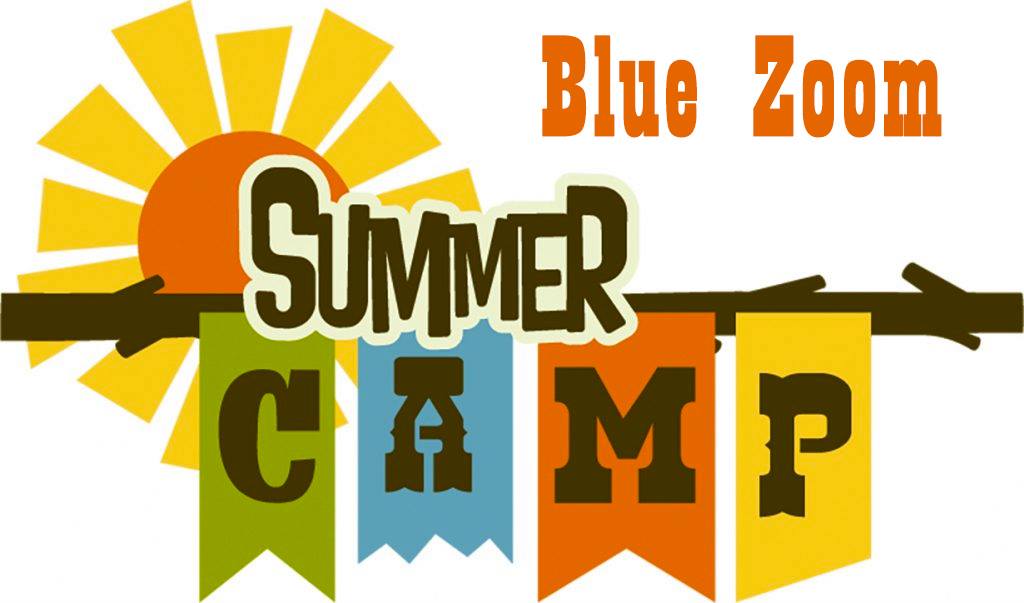
Tell me about the Bloom Zoom Summer Camp and how that came about?
I’ve been doing camp for—I think this will be, like, the fourth or fifth year. We got a grant from Butte Strong, so we’re able to accommodate 20 kids a week between two different Zoom sessions—a morning camp and an afternoon camp. For kids who were [impacted] by the Camp Fire, we have spots for five scholarships a week.
Our offensive plan [for the theater] is to try to plan for things we can do. Our defensive plan right now is that we actually have this camp in place, and if it’s successful and we can fill it up and do it, that will give us [some] time.

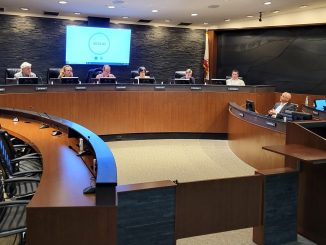

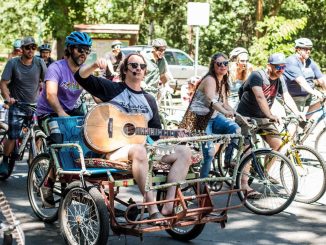
Be the first to comment